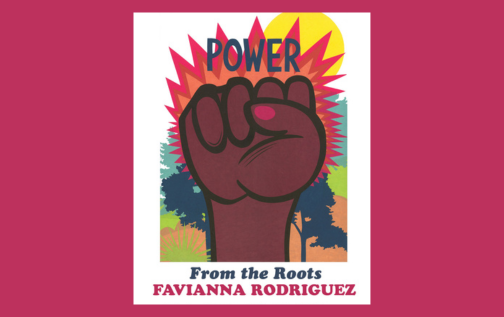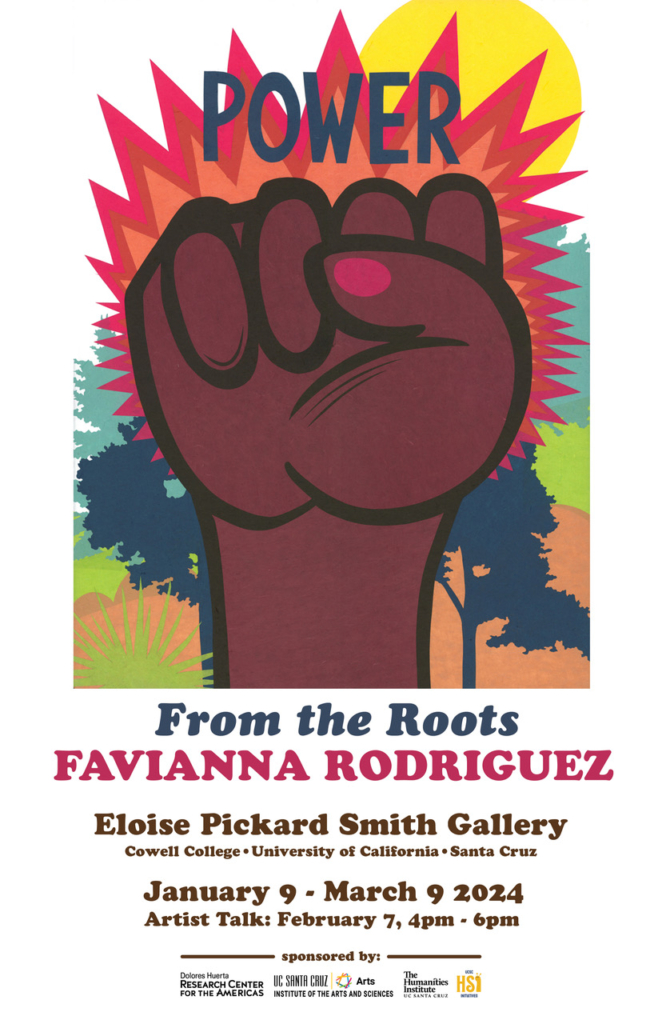Seeing Through Stone: Sonny Trujillo’s Voice from Within
Remy Francisco, October 25, 2024 At 63 years old, Sonny Trujillo stands upon a collapsed prison surveillance tower. He paces five steps...
IAS & Santa Cruz Barrios Unidos Galleries will be closed Dec. 21, 2024–Jan. 1, 2025.


The Eloise Pickard Smith Gallery is pleased to present a solo exhibition Favianna Rodriguez: Power From The Roots. Rodriguez is an Oakland based activist and artist beloved for her work tied to social justice movements, such as her iconic image of a butterfly with the text “Migration is Beautiful” mobilized in support of migrant justice. In recent years, Rodriguez has focused on figurative work related to plants, animals and climate justice. This exhibition asks: how do portraits of species relate to an ecology of social movements? The show is organized around local species impacted by climate change including coastal redwoods, mountain lions, coho salmon and butterflies, among others. These portraits of species are in dialogue with activist posters, demonstrating how social issues are fundamentally intertwined with environmental justice. For example, a collaged portrait of coho salmon, a keystone species that the Ohlone people relied on for food, will be surrounded by posters about decolonization and food justice. Viewers will explore activism from the roots- both in terms of systemic issues impacting our world today and the actual roots of the trees that inhabit our shared local ecosystem. Power From The Roots will be on view January 9-March 9, 2024.
Favianna Rodriguez will be giving an Artist Talk on February 7, 2024, 4-6 p.m. at the Stevenson Event Center located at Stevenson College at the University of California, Santa Cruz. Rodriguez will give a dynamic lecture about how art can inspire, educate, and help spur the imagination toward social change. She will show examples of her art over the last decade, and speak about how her work addresses racial justice, climate justice, migrant rights, and gender justice.
This event is sponsored by the Dolores Huerta Research Center for the Americas, the Institute of the Arts and Sciences, The Humanities Institute, and UCSC Hispanic-Serving Institution Initiatives.
